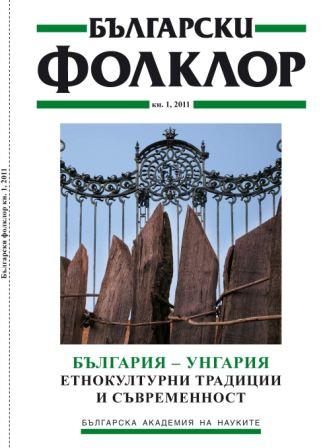Унгарската „fürdő“: място за отдих, развлечение, възстановяване и лечение. Исторически преглед
Hungarian Fürdő: Place of Relax, Entertainment, Recreation and Medical Cure. A Historical Review
Author(s): Katalin JuhászSubject(s): Customs / Folklore
Published by: Институт за етнология и фолклористика с Етнографски музей при БАН
Summary/Abstract: Ethnographers tend to neglect the study of simple, stereotypical acts of everyday life such as the act of washing oneself. In the broad sense we understand by the term of „washing (oneself)” not only the gestures necessary to clean the body or parts of it from any material dirt or filth but also the acts which satisfy the social demands linked to proper cleaning. Hence “washing” can assume magical connotations as well. In pre-modern societies the ritual of washing took place in the community, in accordance with its norms. Quite a few procedures aimed at healing and/or protecting the body or the soul from bewitching or witchcraft are based on the real, imaginary, or mythical virtues of water. There are also such rites linked to transition (birth, initiation, wedding, death etc.) as well as cathartic rites that can renew or ensure health and beauty at some well defined day or period of the year (mainly in springtime). Wide-ranging research has shown that cleanliness is both a social and a historical construction, that is, a relative rather than an absolute concept. The rather complex psychological and social causes of “washing” change with time and space. The social change characterized by modernization and urbanization in the first half of the 20th century had a profound effect on the mentality, way of life and social behaviour of Hungarian peasantry. This change in turn completely modified the meaning of “washing” and the related customs. With the advent of modernity, washing and bodily hygiene became individualised. Thus the individual freely decides where to belong and creates his or her appearance according to the demands of the community. Washing is not a simple elimination of dirt, but a rite de passage. With its additional activities it aims to achieve an ideal, clean and perfect outlook, intended to conform to the liking of the community. Purity indicates to the outside world that the given person is a full member of the community. The aim of the present essay is to analyse the customs related to washing and bathing and their modification triggered by social change. It contains a brief clarification of the terms “cleanliness” and “hygiene”, a short historical review of Hungarian and international research and a short history of “washing” as a universal custom, and an overall picture of the major stages in the change in village habits of cleanliness.
Journal: Български фолклор
- Issue Year: XXXVII/2011
- Issue No: 1
- Page Range: 63-83
- Page Count: 21
- Language: Bulgarian
- Content File-PDF

